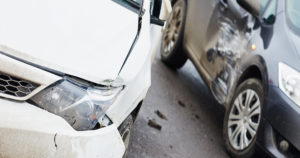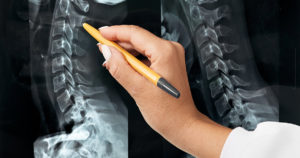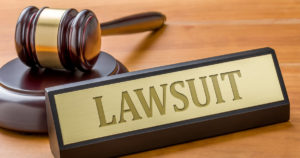What are the Common Types of Car Accident Injuries?
Car accidents are a terrifying and jarring experience for everyone. Drivers, passengers, and even pedestrians can suffer in the aftermath of these accidents. It is crucial that victims understand their rights and the extent of their injuries.
Speak with our car accident attorneys in Philadelphia after an accident to review the facts of the case and determine how to recover compensation for those injuries. While victims deserve remuneration for their suffering, they must also understand the recovery they face. Without this information, it is difficult for victims to mentally prepare for the long road ahead.
Can I Sustain Whiplash in a Minor Accident?
Whiplash can occur even at low speeds because the head and neck snap back to the headrest or seat regardless of the speed or force involved. Even small children can experience whiplash when they are in a car seat. Once an accident takes place, even if neither vehicle sustains much damage, it is important to stop, call 911, and request an accident report. These injuries can also occur when an otherwise uninjured person walks away from what should have been a devastating accident.
To diagnose whiplash, doctors use a few simple tests during a physical examination, according to Mayo Clinic. Patients move their necks to check their range of motion, including how this movement feels in their shoulders. The doctor is looking to determine the level of pain associated with this movement.
Some patients will feel tenderness in that area or note a lack of strength in their neck. The sensation in their neck or shoulders might be heightened, including tingling in nerves.
Unfortunately, whiplash does not appear on images. Doctors, instead, use imaging to rule out other injuries that might present as whiplash, including fractures, dislocations, arthritis, bone contusions, or damaged discs. Even though a patient’s injuries may not appear to be severe, that does not mean that they have nothing to worry about.
Patients may require some physical therapy to help them rotate their necks, tilt their heads, or bend their necks normally. They may also need foam collars to prevent further damage. If necessary, patients may need pain medication, muscle relaxers, injections, and several days off work to rest. In extreme cases, the victim cannot work normally because they cannot focus long enough to complete tasks, resulting in job loss or reduced earnings. If left untreated, whiplash can cause months of pain, sleeplessness, headaches, and even nausea. These cases are most often ignored as victims do not realize there is a problem until the statute of limitations has expired.
How Do Car Accident Victims Suffer Head Injuries?
Car accident victims most often suffer head injuries if they are not wearing their seat belts. In Pennsylvania, it is against the law to operate or ride in a car without one. While seat belt laws address individuals 18 years of age or older, children should be harnessed into car seats or boosters where appropriate.
Mayo Clinic recommends that everyone who feels even a light blow to the head see a doctor. Commonly, car accident victims hit their heads on the steering wheel, dashboard, windshield, windows, seatbacks, or debris inside the vehicle. Head injuries can occur at slow speeds, especially when victims are not wearing seat belts. Even a basic injury, such as a driver knocking their head on the seat belt pulley, requires treatment because bruising and brain injury is still possible.
Significant blows to the head can cause concussions and contusions while open head wounds indicate the skin is broken or an object penetrated the skull. Victims may not suffer a blow to the head, but the force of the crash may be so violent that their brain bruises itself against the skull as it moves around. This type of injury is called a coup-contrecoup.
What are Common Symptoms of Head Injuries?
While it is true that head injuries can result in headaches, nausea, vomiting, and even a loss of consciousness, the symptoms can be much more severe. Victims should not ignore other symptoms, including:
- Speech issues, such as slurring words or difficulty finding the right words
- Dizziness or a complete lack of balance
- Sensitivity to light and sound
- Bouts of depression or anxiety
- Convulsions or seizures
- Weakness in the extremities
- A loss of coordination
- Severe mood or personality changes
- Vertigo
If the damage is more severe, victims may suffer from altered states, such as:
- A coma, from which the victim may or may not recover
- A vegetative state, which may or may not be permanent
- Brain death, which results in the removal of breathing machines and death
Victims might also suffer from a minimally conscious state. In this condition, patients have some self-awareness, but they are not completely aware. This is often the stage between a coma and full consciousness; however, the victim may never exit this phase of recovery. If the victim recovers completely, they may suffer from other issues that remain, even though they can essentially lead a normal life. These issues include:
- Facial paralysis or palsies
- A loss or severe alteration of the sense of smell
- Lost taste or a persistent bitter taste in the mouth
- Blindness, double vision, blind spots, or other visual impairments
- Problems with swallowing
- A constant ringing in the ears
- Hearing impairment or deafness
Traumatic brain injuries might also result in memory or learning issues, problems with reasoning, altered judgment, or difficulty concentrating. Cognitively, the after-effects can impact one’s problem-solving ability, an inability to multitask, lack of organization, or impulsivity. Victims also have trouble making decisions or suffer anxiety when making simple decisions.
Some may experience reduced cognition, trouble reading, difficulty writing, or an inability to speak. These situations may result in the victim failing to obtain gainful employment or stepping down to a simpler job that does not pay what they were accustomed to. Even after recovery, victims of traumatic brain injuries may have an increased risk of degenerative brain disorders. These injuries could be related to higher instances of Alzheimer’s disease, Parkinson’s disease, or dementia.
Ignoring these symptoms is not advisable as the situation will only worsen, resulting in severe disability, paralysis, or death. Consult with a doctor and review the facts of the case with a car accident lawyer because recovery from these injuries can be costly.
Why am I Still Suffering from Back Pain?

As with whiplash, doctors often cannot diagnose these conditions with imaging. Visiting a doctor and explaining the physical pain felt after an accident is the only way to receive a proper diagnosis. Radiating pain in the lower back can make it difficult to perform basic manual labor. Such an injury can lead to job loss, a lifetime of chronic pain, and even invasive surgery to repair the damage.
How Severe are Broken Bones?
About six million Americans suffer from a broken bone every year. Someone who suffered a broken bone in the past may not feel that it is a severe injury, but it can be. Broken arms and hands are common because of the violent jostling of everyone in the vehicle. An arm or hand might strike the door or window, causing a break. Drivers holding the steering wheel could suffer more severe fractures because their arms are extended while driving.
Lower leg fractures of the fibula and tibia are very common because the legs rest in the crumple zone at the front of the vehicle. If the car crumples far enough, passengers in the backseat can also suffer from broken bones. The collarbone is a thin bone that breaks easily under the extreme pressure and force of a car accident. Since this bone runs over the top of the ribcage, it could be broken when the arms are forced back, or the upper ribs break. Sternum, or breastbone, fractures may also occur when the seat belt holds back someone in an especially violent crash. The pain can be intense, but some victims may ignore those symptoms, thinking they are normal.
The seat belt can also cause pelvic fractures as well when it pulls back the victim. These injuries can occur in less severe accidents because the victim was near the impact zone or their body shifted awkwardly during the accident. While a broken pelvis may not prevent the victim from walking, it makes walking unpleasant and radiates pain throughout the hips, groin, and waist.
Victims may also ignore broken fingers and toes if they only feel moderate discomfort or notice light bruising. Seek medical attention in these cases because broken toes and fingers that set improperly can lead to chronic pain or make manual tasks difficult to complete. Broken bones can also lead to infections that prolong recovery time and cause severe illness without the appropriate treatment.
How Do I Know if I Have a Spinal Injury?
Spinal injuries can result in back pain, which is primarily how victims determine that they have such an injury. They may have compressed discs, herniated discs, broken vertebrae, or spinal contusions. In every case, a doctor must use imaging and a physical examination to determine the extent of the damage.
Spinal injuries can cause painful breathing, bladder problems, and numbness in the extremities. If the spinal cord is severed, paralysis will result. It is important for victims to never move someone who is badly injured or immobile after an accident. In these cases, allow EMTs or other first responders to move the victim safely to an ambulance.
Am I Suffering from Internal Bleeding?
A tell-tale sign of abdominal bleeding is a bruise around the navel, along with cold sweats, a rapid heartbeat, and/or intense lethargy. Anyone suffering from abdominal or chest pain that seems to come from nowhere should call 911 or go to the emergency room immediately. Internal bleeding is impossible, and victims may be bleeding in the aftermath of an accident without knowing. Doctors can use imaging to check for internal bleeding.
In many cases, damage to the organs below the ribs can cause internal bleeding. The liver, bladder, kidneys, pancreas, and stomach are all susceptible to injury. Victims may notice blood in their urine, pass out due to blood loss, or feel persistently faint.
Are Burns Common After Car Accidents?
Fires can be rare in car accidents for a variety of reasons, but there are other sources of burns that victims should recognize. Even in the immediate aftermath of an accident, victims could suffer severe burns. If a fire occurs, victims should exit the vehicle as quickly as possible. They should not stay behind to pull personal belongings or keepsakes from the car. If another vehicle is engulfed in flames, victims should stand back so that first responders can handle the situation.
Every vehicle, guardrail, or other piece of metal involved in a car accident can be extremely hot to the touch. Those near the scene, should avoid these surfaces and seek treatment for first and second-degree burns. Some vehicles haul toxic chemicals that cause topical burns up to and including blindness. Hot water and steam might also release during an accident, causing scalding and severe burns. In those situations, it is the tank or vehicle designer who is responsible for its failure. The liable driver can also be held responsible for causing the victim’s suffering.
Road rash is another common burn resulting from skin skidding on the pavement after an accident. Treatment should be sought so that the damaged skin can be treated or grafted properly.
Can I Develop Post-Traumatic Stress Disorder from a Car Accident?
Post-traumatic stress disorder (PTSD) is a common problem for car accident victims. The emotions of the event can return to the victim at any time, and victims with a history of trauma or mental illness may suffer more acutely from this condition. Victims may not realize they have PTSD right away, but they often engage in avoidance behaviors.
Avoidance behaviors become a part of the victim’s routine. Unfortunately, avoidance behaviors will continue to narrow the victim’s quality of life as they think and overthink the accident. PTSD can also lead to victims experiencing intense emotional reactions to very basic stimuli. For example, the creaking sound of the hinges of a door or a heavy pot falling could be enough to terrify the victim.
They might also experience flashbacks, vivid nightmares, or intrusive memories of the accident. In addition, they might space out for a moment while thinking about the accident, or they cannot stop the memories from flooding back. As a result, the victim’s outlook on life could become extremely negative or pessimistic. These are natural responses to a severe or traumatic accident, but the victim must attend therapy sessions and learn coping techniques to work through their pain.
Should I Hire a Car Accident Lawyer?
Victims have every right to reach out to a lawyer and request a consultation. A lawyer will review the case and determine if the victim can move forward with their petition for compensation. Lawyers calculate compensation for medical costs, recovery fees, lost income, lost earning potential, emotional trauma, and pain and suffering.
Punitive damages may be available depending on the extreme malice or recklessness of the at-fault party. Anyone from another driver to a truck driver or trucking company could be liable. Businesses and government agencies can also be named in these lawsuits. Eyewitness accounts and images of the accident scene help lawyers determine fault and file claims appropriately. Hiring a lawyer after an accident allows victims to seek damages before the statute of limitations expires. Lawyers provide needed assistance as injured and potentially disabled victims focus on recovering.
Philadelphia Auto Accident Lawyers at Nerenberg Law Associates, P.C. Help Victims Recover Compensation for Their Injuries
If you have been injured in a car accident, you can reach out to the Philadelphia Auto Accident Attorneys at Nerenberg Law Associates, P.C. for assistance. We help our clients recover compensation and protect their rights. Call us today at 215-569-9100 or contact us online for a free consultation. Located in Philadelphia, we serve clients in both Pennsylvania and New Jersey.





